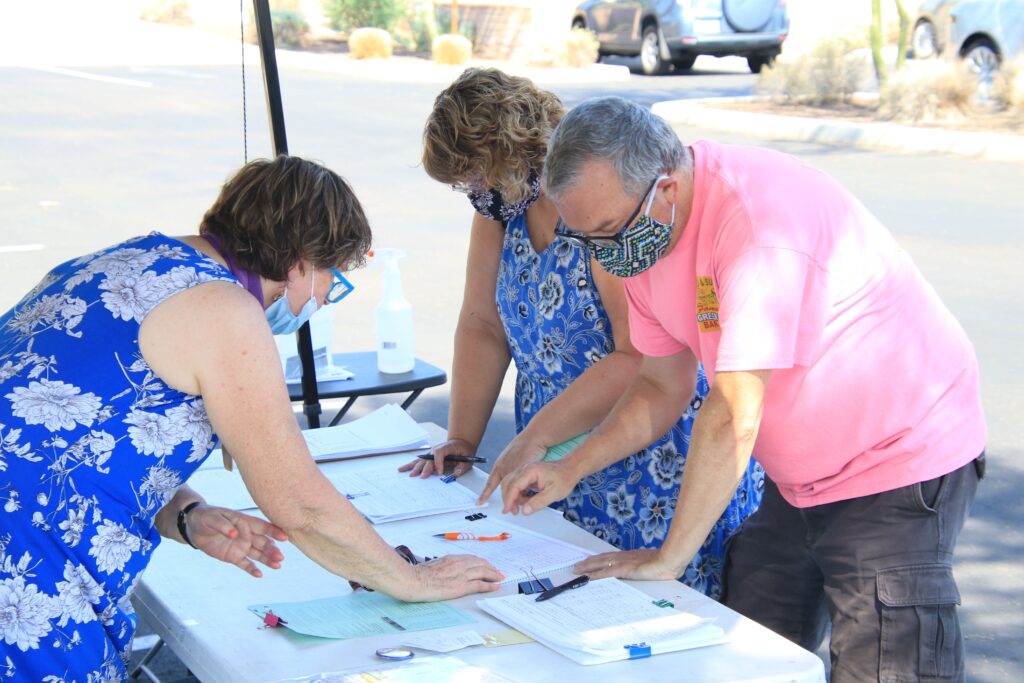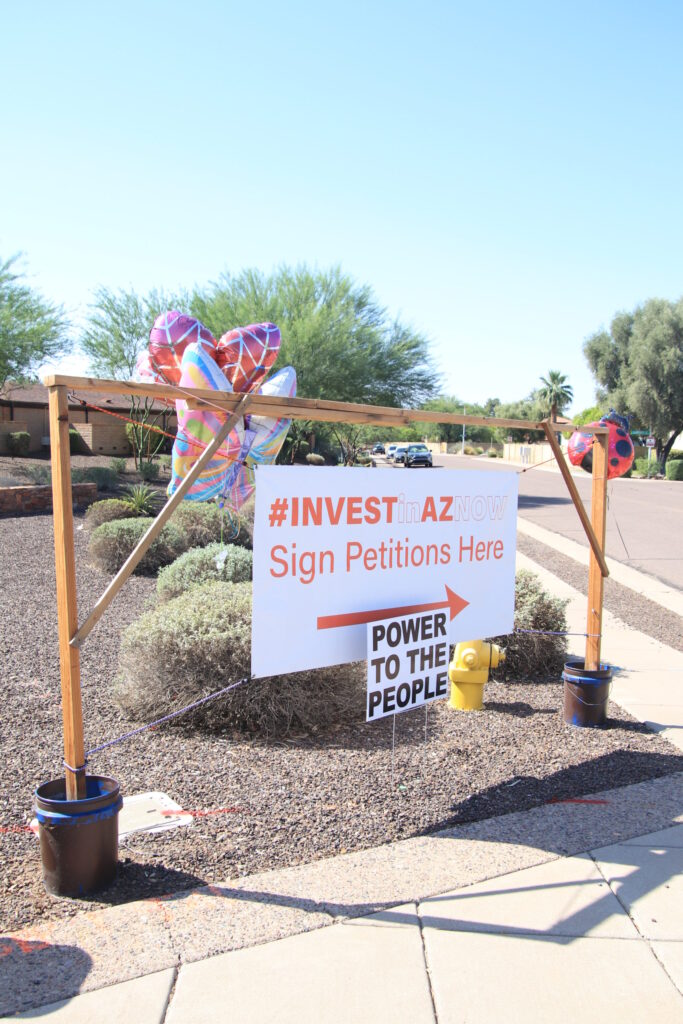
Story and photos by Andrew Lwowski, wn.calicoeng.com/KyreneCorridor.com
Protestors of three tax cuts enacted by the Legislature this year gathered at Dayspring United Methodist Church over the weekend to support a ballot referendum to repeal them — and they’re not finished.
Petition gatherers, who want to keep a 2020 voter-approved tax for education funding that the legislation essentially makes moot, will be back at Dayspring, 1365 E. Elliot Road, 7:30 a.m. to 1:30 p.m. every Saturday and 8 a.m. to noon every Sunday through Sept. 30 for anyone who wishes to sign.
The group, which is mobilizing parishioners and others in an effort to attract passing motorists, supports Arizona Proposition 208 that imposes a surtax on Arizona’s highest earners to provide funding for statewide education with an additional 3.5 percent tax on top of the existing 4.5 percent tax for individuals whose income exceeds $250,000 for single filers or $500,000 for joint filers. The extra 3.5 percent would support teacher salaries, additional staff and educational programs in Arizona.
The petition drive at Dayspring United Methodist Church are an attempt to help the social-welfare group Invest in Arizona Coalition obtain the required 118,000 signatures by Sept. 30 to get the referendum on the ballot.
Members of #Invest in AZ Now are attempting to repeal the three legislative measures enacted during the 2021 session: Senate Bill 1828, a 2.5 percent flat tax; Senate Bill 1827, a 4.5 percent tax cap on all income, giving the wealthier a larger tax break than those with a smaller income; and Senate Bill 1783, which created a new filing category that would allow wealthy taxpayers to bypass the surcharge altogether.
Ruth Boyle, a Tempe Union High School District French teacher, who is part of #Invest in AZ Now, said she notices a direct benefit of Prop. 208 already. She was among those at Dayspring United Methodist signing a petition.
“I think, for me, the biggest thing is to add more support staff and get class sizes down,” Boyle said. “I have 190 students that I deal with every single day.”
With large class sizes that, in turn, create a larger amount of grading outside of class, Boyle says it hinders the quality of learning for her students.

Boyle’s objective, she said, is to provide the best learning experience for her students.
“I’ve been teaching since the mid ’90s and it was hard when I started, but it is exponentially harder to be a teacher right now,” she said. “This is the third time now that we’re out trying to get Invest in Ed to pass and actually bring more money into education.”
Tom Griffith, a church member, also signed, saying the education system cannot function effectively or efficiently without adequate funding.
“We somehow need to make sure that our tax system makes enough money to provide for all the things that the state needs to provide,” Griffith said.
Griffith believes that the trio of tax laws enacted during the 2021 legislative session are disproportionate taxation based on income.
“If I have to pay $10 for something, is that going to affect my income? If somebody has $2 million income, and has to pay $10 for something, it’s disproportionate,” Griffith said.
Amy Notbohm, the community curator at Dayspring United Methodist, said the referendum’s focus is investment in education and that the state’s new measures hinder that.
“I think it’s really important that we’re investing in Arizona’s future,” Notbohm said. “That applies to everything that our state budget supports—predominantly education—and helping make sure that we’re setting up a sustainable and excellent education for our children in the future.
“It’s supporting the state’s budget that helps support our cities and public safety, but overall, the reason we’re doing this is because, at United Methodist Church, we have a strong history of supporting social-justice causes. Going back to our founder, they worked on establishing hospitals, schools and universities and even worked on the abolitionist movement.”
Dayspring is part of a larger coalition and a member of Valley Interfaith Project, an organization of about 40 churches and institutions around the Valley.

